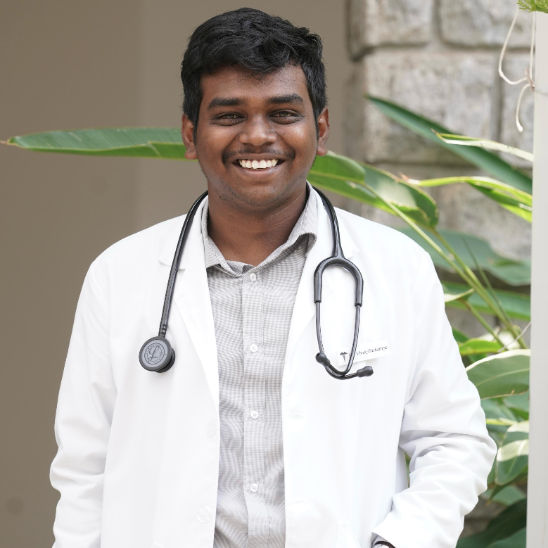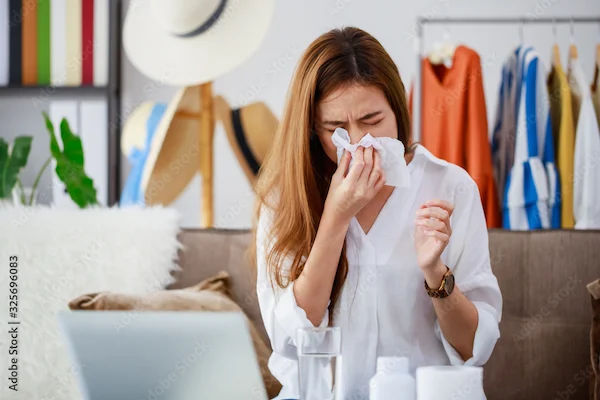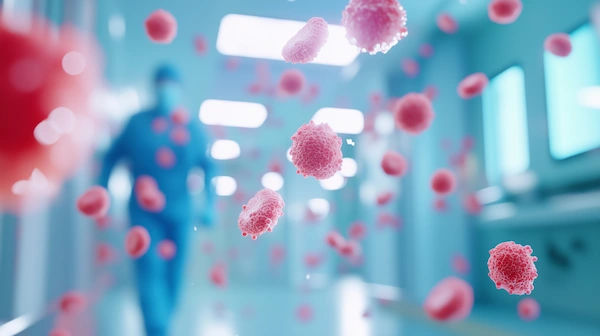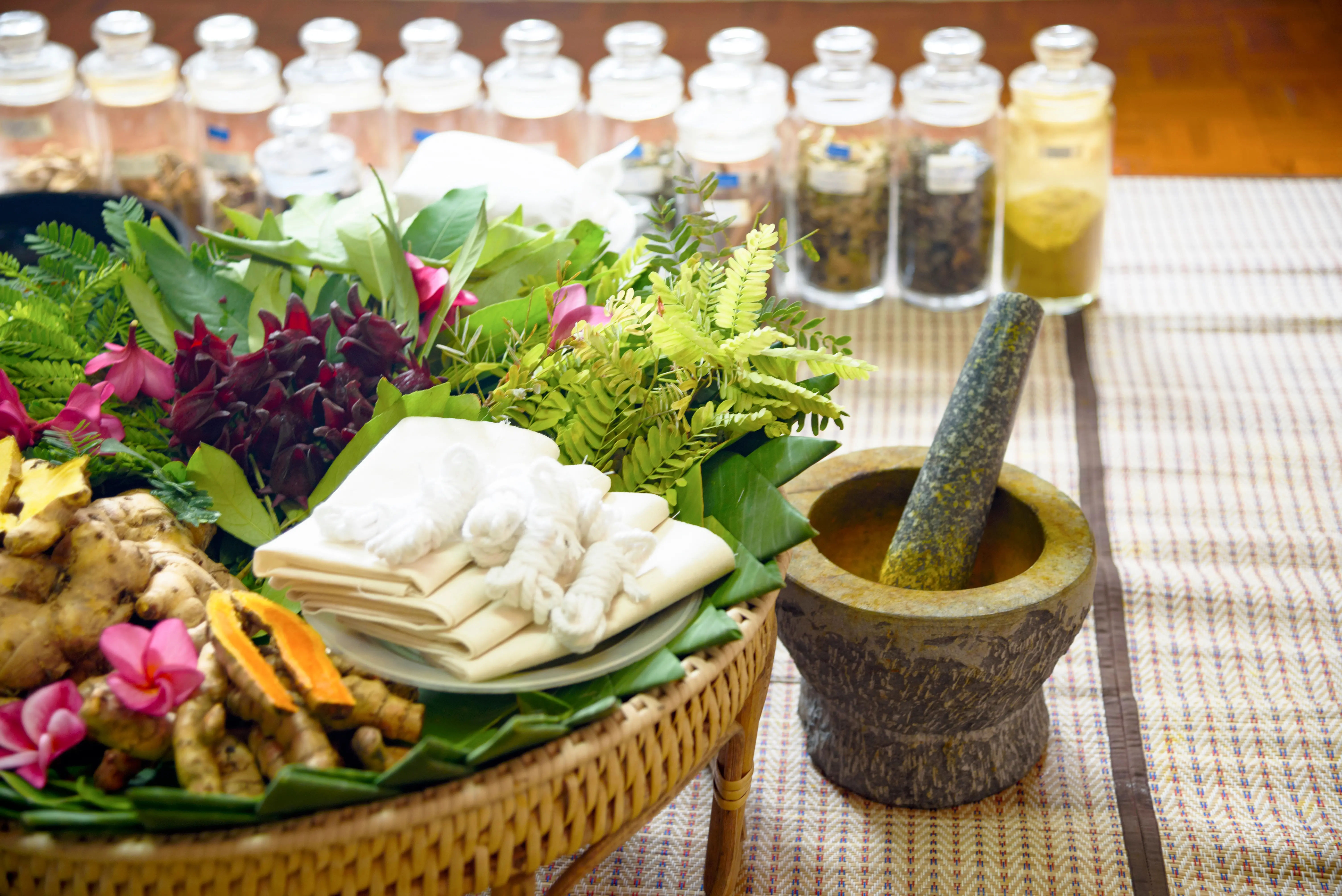Guide to Cholera Disease Prevention
Learn how to prevent cholera with effective water, sanitation, hygiene practices, and vaccines. A complete guide to symptoms, prevention, and protection.


Introduction
Cholera is a swift and severe diarrhoeal disease that poses a significant health threat in areas with inadequate water treatment and sanitation. Caused by the bacterium Vibrio cholerae, it can lead to profound dehydration and death within hours if left untreated. However, and this is the most critical point, cholera is preventable. With the right knowledge and practices, you can drastically reduce your risk of infection. This guide is designed to empower you with that knowledge. We will walk you through everything you need to know—from how the disease spreads and its symptoms to the most effective, evidence-based strategies for cholera prevention. Whether you're living in a high-risk area, travelling, or simply want to be informed, this comprehensive resource will serve as your blueprint for staying safe.
What is Cholera? Understanding the Threat
Cholera is an acute intestinal infection caused by ingesting food or water contaminated with the bacterium Vibrio cholerae. It is not typically spread from person to person through casual contact. The real danger of cholera lies in the potent toxin the bacteria produce in the small intestine. This toxin triggers the body to secrete enormous amounts of water and electrolytes, leading to the rapid, watery diarrhoea that characterises the disease.
How Cholera Spreads: The Faecal-Oral Route
The transmission of cholera follows a simple but devastating pathway known as the faecal-oral route. Infected individuals shed the bacteria in their faeces. If even microscopic amounts of this contaminated faeces find their way into a community's water supply or food chain, the bacteria can spread rapidly. This happens most commonly through:
- Drinking water contaminated at its source or during storage.
- Eating raw or undercooked seafood, especially shellfish from contaminated waters.
- Consuming fruits and vegetables washed with contaminated water.
- Poor hygiene practices, such as not washing hands with soap after using the toilet and before handling food.
Global Impact: Where is Cholera Most Common?
Cholera remains a global threat to public health, primarily in regions with poverty, overcrowding, and inadequate
infrastructure. It is endemic in many parts of Africa, South Asia, and Haiti. According to the World Health
Organization (WHO), researchers estimate there are 1.3 to 4.0 million cases of cholera worldwide each year, leading to 21,000 to 143,000 deaths. Outbreaks often occur in the wake of humanitarian crises, such as famine or natural disasters, which disrupt already fragile water and sanitation systems.
Recognising the Signs: Symptoms of Cholera
Early recognition of symptoms of severe dehydration is crucial for seeking timely treatment. It's important to note that not everyone infected with Vibrio cholerae will develop symptoms, but they can still shed the bacteria in their faeces for 1–10 days, potentially infecting others.
Mild vs. Severe Symptoms
Many infections are mild or asymptomatic. However, about 1 in 10 infected people will develop severe symptoms,
which can appear anywhere from 12 hours to 5 days after infection. These include:
- Profuse, watery diarrhoea often described as "rice-water stools."
- Rapid heart rate.
- Low blood pressure.
- Muscle cramps.
- Restlessness or irritability.
- Vomiting.
The Danger of Severe Dehydration
The massive loss of fluid and electrolytes (sodium, potassium, chloride) is life-threatening. Signs of severe dehydration include:
- Sunken eyes.
- Dry mouth and extreme thirst.
- Cold, clammy skin.
- Wrinkled skin on the fingers ("washerwoman's hands").
- Little or no urine output.
- Lethargy, confusion, or loss of consciousness.
This state of shock can be fatal within hours. Therefore, immediate rehydration is the cornerstone of treatment.
Your First Line of Defence: How to Prevent Cholera
Prevention is overwhelmingly more effective than treatment. The strategies for cholera prevention are collectively known as WASH: Water, Sanitation, and Hygiene.
Water Safety is Non-Negotiable
Ensuring your drinking water is safe is the single most important step.
- Boiling: The Gold Standard: Bringing water to a rolling boil for at least 1 minute (3 minutes at higher altitudes) is the most reliable way to kill Vibrio cholerae and other pathogens.
- Chemical Purification: Chlorine and Bleach: If boiling is not possible, chemical disinfection is effective. Use commercially available chlorine tablets or liquid household bleach (containing 2–6% sodium hypochlorite). Generally, 2 drops of bleach per litre of clear water (or 4 drops for cloudy water) is recommended. Stir and let it stand for 30 minutes before use.
- Filtration Methods: Use a certified water filter with a pore size small enough to remove bacteria (absolute pore size of 1 micron or less). Always follow the manufacturer's instructions.
Food Hygiene: Eat Safe to Stay Safe
The mantra for what to eat during a cholera outbreak is simple: "Cook it, peel it, boil it, or forget it."
- Avoid raw foods, including salads, unpeeled fruits, and raw shellfish.
- Eat foods that are thoroughly cooked and served hot.
- Peel fruits and vegetables yourself immediately before eating.
- Avoid unpasteurised milk and dairy products.
- Be wary of street vendor food, as the water used for washing or preparation may be unsafe.
Personal and Domestic Hygiene: Breaking the Chain
- The Critical Importance of Handwashing: Wash your hands thoroughly with soap and safe water, especially after using the toilet, cleaning a child's bottom, and before preparing or eating food. If soap and water aren't available, use an alcohol-based hand sanitiser with at least 60% alcohol (though soap and water are superior for removing certain pathogens).
- Safe Sanitation Practices: Use toilets or latrines for defecation. If none are available, defecate far away from any water sources and bury the faeces. Dispose of children's faeces in a toilet immediately.
The Role of Oral Cholera Vaccines (OCV)
Vaccines are a valuable tool but are not a standalone solution. Currently, there are three WHO-prequalified oral
cholera vaccines (Dukoral®, Shanchol™, and Euvichol-Plus®). They require two doses for full protection.
Who Should Consider the Cholera Vaccine?
The vaccines are primarily used in areas where cholera is endemic or during humanitarian crises with high outbreak risk. They are recommended for:
- Travellers to areas with active cholera transmission who cannot reliably access safe water and food.
- Individuals living in cholera "hotspots."
- Humanitarian workers in outbreak settings.
Understanding Vaccine Limitations
It is crucial to remember that the vaccine is not 100% effective and does not provide lifelong immunity. It should never
replace core prevention measures like safe water and hygiene practices. It is an additional layer of protection, not a replacement.
What to Do If You Suspect Cholera
Immediate Action: Start Oral Rehydration Therapy (ORT)
At the first sign of severe diarrhoea, begin drinking oral rehydration solution (ORS). ORS is a prepackaged mixture of glucose and electrolytes that you mix with safe water. It is available in packets from pharmacies and aid organisations. Drink it in small, frequent sips. If ORS packets are unavailable, a homemade solution can be made with 6 level teaspoons of sugar and 1/2 level teaspoon of salt dissolved in 1 litre of safe water. However, homemade solutions are less optimal.
When to Seek Medical Help Immediately
ORT is a first-aid measure, not a cure. Severe cholera requires intravenous fluids and antibiotics administered in a medical setting. Seek immediate medical attention if:
- Diarrhoea is severe and watery.
- You are unable to keep down fluids due to vomiting.
- Signs of severe dehydration (listed above) appear.
If you or a family member are experiencing these severe symptoms, consult a doctor online immediately with Apollo24|7 for urgent guidance or locate the nearest healthcare facility. They can provide critical advice on next steps and help you arrange for necessary care.
Cholera Prevention in Outbreak Situations
During a declared outbreak, community-wide efforts intensify. Public health measures include:
- Public Awareness: Disseminating information about prevention through local media.
- Water Source Chlorination: Adding chlorine to community water sources like wells and distribution points.
- Setting Up ORT Corners: Establishing locations in communities where ORS is readily available and mild cases can be
managed. - Mass Vaccination Campaigns: Deploying OCV to create herd immunity and slow the spread.
As an individual, during an outbreak, you should be extra vigilant about all the prevention measures listed above and
follow any specific guidance from local health authorities.
Conclusion
Cholera is a formidable disease, but it is ultimately defeated not by complex medicines, but by fundamental practices. The power of cholera prevention lies in your hands—literally, through the simple act of handwashing, and figuratively, through the choices you make about water and food. By understanding the routes of transmission and rigorously applying the WASH principles (Water, Sanitation, Hygiene), you can protect yourself, your family, and your community. Stay informed, stay vigilant, and remember that proactive prevention is always the best cure. If you have specific concerns about your risk or are planning travel to a high-risk area, consulting a healthcare professional for personalised advice is always a prudent step.
Consult a Specialist for the best advice
Consult a Specialist for the best advice
Dr. Srilekhya
Internal Medicine Specialist Diabetologist
10 Years • MBBS, MD (GENERAL MEDICINE)
Bengaluru
Apollo Medical Center, Marathahalli, Bengaluru

Dr Churchil Gupta
General Practitioner
2 Years • MBBS
Greater Noida
Vedant Clinic, Greater Noida

Dr. Minakshi Dutta
General Practitioner
37 Years • MBBS
Bengaluru
Trini Healthcare Pvt Ltd, Bengaluru

Dr. Utsa Basu
Diabetologist
14 Years • MBBS , MD
Barasat
Diab-Eat-Ease, Barasat
(75+ Patients)

Dr. Vivek D
General Physician
4 Years • MBBS
Bengaluru
PRESTIGE SHANTHINIKETAN - SOCIETY CLINIC, Bengaluru
More articles from General Medical Consultation
Frequently Asked Questions
Is cholera contagious?
Cholera is not directly contagious from person-to-person through casual contact. It spreads indirectly when a person ingests food or water contaminated with the faeces of an infected individual.
What is the oral rehydration solution recipe if I don't have a packet?
In an emergency, mix 6 level teaspoons of sugar and 1/2 level teaspoon of salt into 1 litre of clean, safe water. Stir until completely dissolved. This is not as effective as WHO-standard ORS packets but can be used until you can get proper medical help.
How long after infection do symptoms of severe dehydration appear?
Symptoms can begin very quickly, usually within 12 hours to 5 days after ingestion of the bacteria. The rapid onset is why immediate action is critical.
Are there any long-term effects after recovering from cholera?
Most people recover fully with no long-term consequences if they are rehydrated quickly. However, some may experience ongoing intestinal issues for a short period.
Can I get cholera more than once?
Yes, it is possible. Infection with one strain of Vibrio cholerae does not provide long-lasting immunity against all strains. This is why continuous prevention is key, even if you've had it before.




